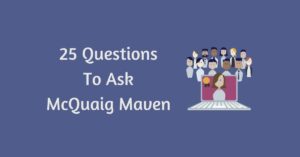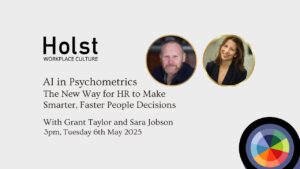Remove bias from your recruitment process to impartially hire people who will meet your organisational objectives.

We are all capable of acting with bias. It’s part of human nature to gravitate towards the familiar, whether that’s in terms of personality, appearance or the sport we follow. However, being biased towards this old familiar in your recruitment process will hinder creativity, innovation and progress in your organisation.
Successful teams and their leaders depend on diversity of thought and collaborative leadership where everyone has a voice. Imagine a team all recruited in the image of the hiring manager. You’d have a lineup of ‘yes-people’ without a fresh idea between them or even worse, all competing against each other for supremacy.
“It’s not about liking each other. We’re coming together at work to be a team, to deliver something on behalf of our customers, clients or constituents. If you go out to hire people who are just like you, it’s unlikely you’re going to solve a problem that people just like you haven't already solved.”
Ex-Netflix chief talent officer Patty McCord Tweet
So this is what you need, how do you hire for it?
The first step is to define what the role needs to deliver success:
- Personality traits
- Human skills
Defining the personality traits for the job is crucial. For example, does the role require exceptional attention to detail or strict adherence to policy? Or, do you need someone who prefers to work without structure under their own steam? Will there be close management? Or does the role require a high degree of self-sufficiency?
Yet, this is not enough. Personality tools such as McQuaig are invaluable to define a baseline set of traits for the job. However, when used in conjunction with a human skills assessment such as flowprofiler®, recruiters and line managers gain deeper insights into the candidates’ empathy and awareness.
For example, a personality tool might tell you that the right candidate should be sociable. But how should that individual show their sociability? Is this someone who exudes confidence at a networking event, full of chat and energy, or perhaps someone quietly collaborates with warmth and cohesion. Both are sociable, but in very different ways. A human skills assessment can help you to dive deeper in this area to further enable you to understand the results of the personality assessment,
Avoid groupthink to improve D&I and remove bias in recruitment
Invite your stakeholders from every level to contribute towards defining the traits and skills for the role. This avoids the pitfalls of hiring ‘in own image’, or rehashing the same old-same old specification. If you are replacing someone who has been in post for several years, the chances are you are now looking for a candidate with a different mindset and skill set. If you are replacing someone who has been in post for a very short time, perhaps your previous set of criteria wasn’t accurate. And, of course, new roles need careful analysis to pin down traits and skills which may be missing elsewhere in the team. By asking for all stakeholder input you can get the perspective of the whole team before inviting candidates to apply for the role.
The McQuaig Job Survey® and flowprofiler® role reviewer™ enable recruiters to create an accurate and unbiased profile against which to compare candidates.
Both McQuaig and flowprofiler® use gender neutral pronouns and can be completed anonymously to further reduce unconscious bias. This creates the conditions for a diverse pool of talent from which you can impartially select for interview. When you finally meet your candidates, you’ll have comprehensive competency and values based questioning from the tools’ interview reports.
Should you hire for cultural fit?
It might seem counterintuitive, but the answer is no. While it’s important to hire a candidate who will get along with the team, hiring for cultural fit reinforces the hiring ‘in own image’ minefield.
“Hiring for cultural fit tends to favour the status quo in the company, whether that relates to race, gender, age, socioeconomic level or even lacrosse abilities. That makes it harder for anyone who doesn’t ‘fit the mould’ to get into sectors where they are currently under-represented.” BBC Worklife: What does being a ‘cultural fit’ actually mean?
It’s important that recruiters ask themselves, am I doing the best for this role and being fair in my approach to recruitment? How can I challenge existing recruitment practices and strive for robustness in the process? With this approach to recruitment, you’ll drive your culture forward and maximise the potential of your organisation.
A recent Aviva poll found 64% planned to make changes to their working lives next year, either by finding a new role, changing the hours they work, or switching careers entirely. This is a significant pool of potential new talent. Don’t allow their lack of ‘on the job’ experience prevent you from considering them for your roles. To a certain extent, role specific skills can be taught. Having the right human skills and personality traits are just as, if not more important for long term success.
Assess or interview first?
There is some debate around where assessment falls in the recruitment process. Assessment for interview, or interview first?
We believe assessment should always come first. But, it should be underpinned by solid benchmarking of the role. You must nail down exactly what is required in order to effectively interview and to meet those requirements. This eliminates bias around fitting the role to a candidate’s traits and skills, puts the needs of the role first and strictly matches the defined criteria.
- Stakeholders define the role requirements using the McQuaig Job Survey® and flowprofiler® role reviewer™
- Impartially assess for the role
- Anonymously
- Gender neutral pronouns
- Impartially select for interview by matching McQuaig Job Survey® and flowprofiler® role reviewer™ to the assessment results
- Use competency and values based questions from the assessment reports
Make better and unbiased hiring decisions with flowprofiler® and McQuaig
Equip your recruiters and hiring managers with the tools and skills they need to make better hiring decisions without bias. Talk to us about recruitment with flowprofiler® and McQuaig.
Contact us to learn more
flowprofiler® and associated marks are registered trademarks of Chalmers International Limited | All rights reserved
eqflow® and associated marks are registered trademarks of Chalmers International Limited | All rights reserved
resilienceflow® and associated marks are registered trademarks of Chalmers International Limited | All rights reserved
motivationflow® and associated marks are registered trademarks of Chalmers International Limited | All rights reserved





